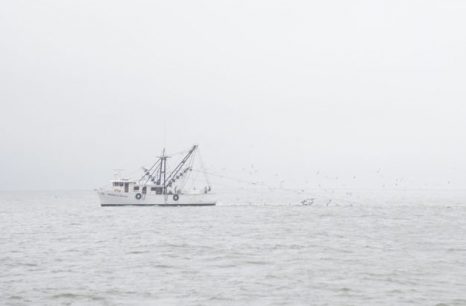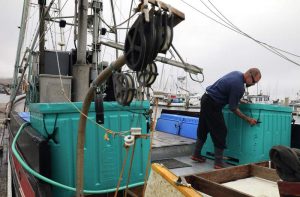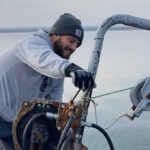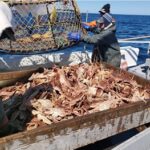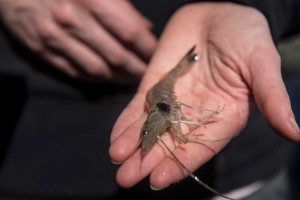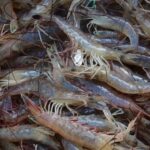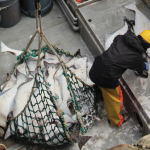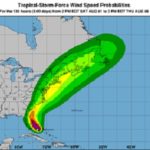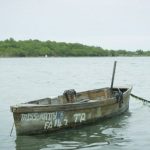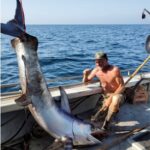Monthly Archives: April 2017
Injured Fisherman rescued 600 miles off California coast by the 129th Rescue Wing
 Early Tuesday morning the 129th Rescue Wing flew two HH-60G Pave Hawk helicopters, one MC-130P Combat Shadow aircraft, and one 4-man Guardian Angel Pararescue team approximately 600 miles off the California coast to the GUTSY LADY 4. Once the 129th RQW personnel reached the GUTSY LADY 4, the Guardian Angel team boarded the fishing vessel and stabilized and secured the patient before hoisting him onto their helicopter. The Guardian Angel team provided care to the patient on board the helicopter until they arrived at San Jose Regional Medical Center Tuesday evening. On Sunday, the 129th RQW accepted the mission from Coast Guard District 11 and established a direct line of communication with the GUTSY LADY 4, which at the time was about 1,100 miles west of the San Francisco Bay Area. click here to read the story 09:06
Early Tuesday morning the 129th Rescue Wing flew two HH-60G Pave Hawk helicopters, one MC-130P Combat Shadow aircraft, and one 4-man Guardian Angel Pararescue team approximately 600 miles off the California coast to the GUTSY LADY 4. Once the 129th RQW personnel reached the GUTSY LADY 4, the Guardian Angel team boarded the fishing vessel and stabilized and secured the patient before hoisting him onto their helicopter. The Guardian Angel team provided care to the patient on board the helicopter until they arrived at San Jose Regional Medical Center Tuesday evening. On Sunday, the 129th RQW accepted the mission from Coast Guard District 11 and established a direct line of communication with the GUTSY LADY 4, which at the time was about 1,100 miles west of the San Francisco Bay Area. click here to read the story 09:06
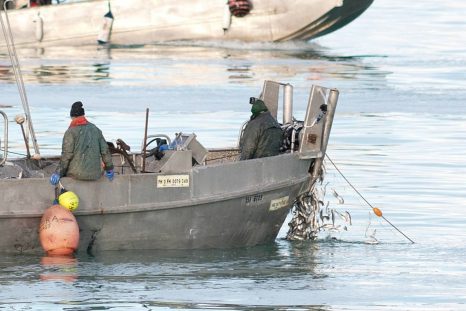
Plenty to go around from this year’s Strait of Georgia herring spawn
It was another strong year for the local herring roe harvest — in line with a growing abundance of herring over the last decade that has led to “historic highs,” said the executive director of the Herring Conservation and Research Society, Greg Thomas. The Nanoose Bay resident said the prediction for this year was 150,000 total tons of herring in the Strait of Georgia. The numbers are provided by Fisheries and Oceans Canada, which assesses the strength of each year’s spawn, and sets the quotas for the following year. The quotas tend to be about 20 per cent of the total, said Thomas. While some reports have said the herring quotas in the Qualicum Beach to Nanoose Bay area were caught quite quickly, Thomas said that, overall, “(Fishing companies) didn’t achieve their total allowable catch, however they did catch a substantial amount of fish.” click here to continue reading the story 08:47
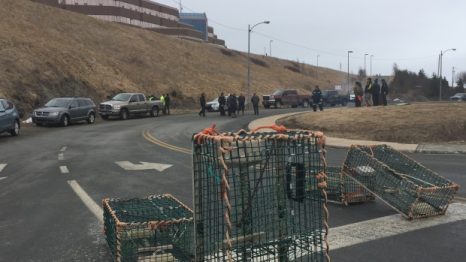
Happening Now! Fishermen block off DFO building in St. John’s for protest
Fishermen have set up camp outside the Department of Fisheries and Oceans office in St. John’s Thursday morning for another protest. The group of 18 protesters set up fishing gear at the entrance to the building around 8 a.m. DFO employees who have not yet come in for work are being asked to stay away until noon. This is the second such protest from the fishermen, who say they’re unhappy about inshore shrimp quota cuts. At the previous protest, the group broke a door and some of them walked into the DFO building. Link 08:14
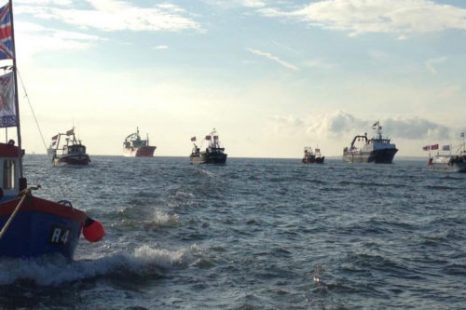
Medieval Histories – Medieval Cod Wars 1415 – 2017
In the 15th-century long-distance fishing appeared as one of the first global industries. Then – as now – huge political and economic interests were at stake; often leading to war. Medieval fishing in the North Sea has for a long time been an important topic for a group of historians, archaeologists and scientists led by J. H. Barrett, Reader in Medieval Archaeology at the University of Cambridge. Being an archaeologist, this has resulted in significant accumulation of valuable knowledge as to how and when the fishing trade in Northern Europe exploded; and how it successively played out. (this is an interesting read, Fast forward) And so it went for centuries with more than ten officially registered “cod wars”. According to the received history, the last two of these began immediately after WW2, when Iceland gained its independence from Denmark.,, Cod Wars Post Brexit,,, click here to read the story 19:19
Eat prawns over Easter? They might’ve been contaminated, Brisbane prawn catches at risk from airport chemical spill
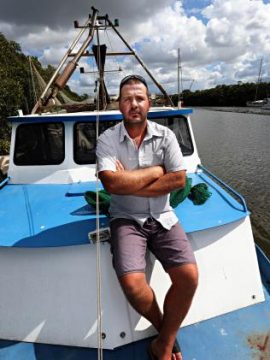 Prawns eaten over the Easter long weekend were most likely contaminated by last week’s toxic spill, Brisbane’s commercial fishers have warned. At least 300kg of prawns were caught from the contaminated zone of the Brisbane River and sold on to local residents over Easter because local fishers were not warned against it. State Environment Minister Steven Miles yesterday wrote to the Federal Minister for Infrastructure and Transport Darren Chester seeking immediate enforcement action to be taken against those responsible for the chemical spill and for the responsible party to “remediate and compensate for any harm caused”. The Queensland Seafood Industry Association received advice from Fisheries Queensland only on Tuesday – a week after the spill – to stop selling seafood caught within the contaminated zone. Local commercial fisher Michael Wilkinson said the advice was “too little, too late” after the State Government initially said the contaminated area did not affect commercial fishing zones. “It makes me sick to my stomach that I sold contaminated food to somebody unbeknown to me,” he said. click to read the story 16:58
Prawns eaten over the Easter long weekend were most likely contaminated by last week’s toxic spill, Brisbane’s commercial fishers have warned. At least 300kg of prawns were caught from the contaminated zone of the Brisbane River and sold on to local residents over Easter because local fishers were not warned against it. State Environment Minister Steven Miles yesterday wrote to the Federal Minister for Infrastructure and Transport Darren Chester seeking immediate enforcement action to be taken against those responsible for the chemical spill and for the responsible party to “remediate and compensate for any harm caused”. The Queensland Seafood Industry Association received advice from Fisheries Queensland only on Tuesday – a week after the spill – to stop selling seafood caught within the contaminated zone. Local commercial fisher Michael Wilkinson said the advice was “too little, too late” after the State Government initially said the contaminated area did not affect commercial fishing zones. “It makes me sick to my stomach that I sold contaminated food to somebody unbeknown to me,” he said. click to read the story 16:58
Brisbane prawn catches at risk from airport chemical spill – click here to read the story.
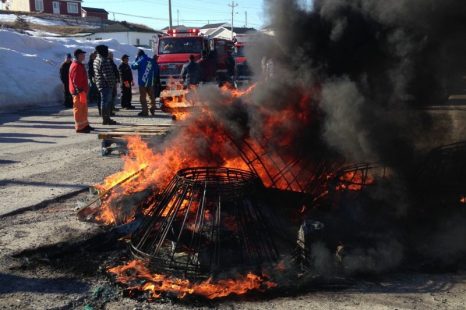
UPDATED: Port aux Choix protesters get meeting with fishery officials
Since the April 18 protest, a meeting has been scheduled between DFO Area Director John Lubar and protest representatives for Friday, April 21 in Hawke’s Bay. Port au Choix harvester Stella Mailman has told the Northern Pen that seven or eight representatives from the area, representing different fleets and fleet sizes, will be attending the meeting – herself, included.
She is hoping they will address the issues the harvesters were protesting and advocating for on April 18. “The 4R lines, the adjacency, and talk about all the cuts to the fishery,” said Mailman. “All the things that was brought up during the protest will be put on the table.” She feels having a meeting means they’re making some progress and hopes that those in authoritative positions in the fishery will not just be willing to talk with them, but with people like Richard Gillett, the harvester undertaking a hunger strike, in St. John’s. click here to read the story 16:30
Day 7 – Newfoundland Fisherman Richard Gillett says he’s prepared to die on hunger strike against Ottawa
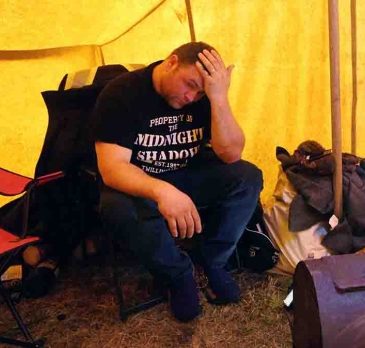 Celebrity Newfoundland fisherman Richard Gillett hasn’t eaten for nearly a week, and says he’s prepared to die for his protest over fisheries management.Gillett starred three seasons on the reality TV series “Cold Water Cowboys,” but is now living in a tent at federal fisheries headquarters in St. John’s. He has slept there six nights and says he has consumed just water since starting his protest on Thursday. Gillett’s demands include a teleconference meeting with federal Fisheries Minister Dominic LeBlanc and an independent review of science and management for all provincial fish stocks. His father, John Gillett, says his diabetic son has had past heart issues and, though he supports his cause, wants him to eat. A spokeswoman for LeBlanc says the minister is not available to discuss the hunger strike or other recent protests about the fishery. Link 15:47
Celebrity Newfoundland fisherman Richard Gillett hasn’t eaten for nearly a week, and says he’s prepared to die for his protest over fisheries management.Gillett starred three seasons on the reality TV series “Cold Water Cowboys,” but is now living in a tent at federal fisheries headquarters in St. John’s. He has slept there six nights and says he has consumed just water since starting his protest on Thursday. Gillett’s demands include a teleconference meeting with federal Fisheries Minister Dominic LeBlanc and an independent review of science and management for all provincial fish stocks. His father, John Gillett, says his diabetic son has had past heart issues and, though he supports his cause, wants him to eat. A spokeswoman for LeBlanc says the minister is not available to discuss the hunger strike or other recent protests about the fishery. Link 15:47
Lobster fishing in Gulf of Maine coral canyons gets initial approval
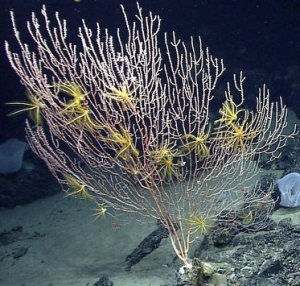 The New England Fisheries Management Council voted 14-1 to ban most fishing in the canyons and plateaus where slow-growing, cold-water coral gardens flourish in the dark waters of the Gulf of Maine. But pleas from Maine lobster fishermen who say a trap ban in fertile fishing grounds off Mount Desert Rock and Outer Schoodic Ridge would cost them millions helped sway an initially resistant council to grant a lobstering exemption. Fishermen also said closing these areas would have led to more traps, and fishing lines, being dropped in nearby waters traveled by endangered right whales, which can suffer injuries or die if they become entangled in lobster fishing lines. Opponents, including environmentalists and some who fish for other species that would not get an exemption in the coral zones,,, click here to read the story. 14:50
The New England Fisheries Management Council voted 14-1 to ban most fishing in the canyons and plateaus where slow-growing, cold-water coral gardens flourish in the dark waters of the Gulf of Maine. But pleas from Maine lobster fishermen who say a trap ban in fertile fishing grounds off Mount Desert Rock and Outer Schoodic Ridge would cost them millions helped sway an initially resistant council to grant a lobstering exemption. Fishermen also said closing these areas would have led to more traps, and fishing lines, being dropped in nearby waters traveled by endangered right whales, which can suffer injuries or die if they become entangled in lobster fishing lines. Opponents, including environmentalists and some who fish for other species that would not get an exemption in the coral zones,,, click here to read the story. 14:50
From the Council – NEFMC Selects Deep-Sea Coral Amendment Preferred Alternatives, Click here to read 15:43

Athearn Marine Agency Boat of the Week: 230ft. Steel Freezer Trawler, 4896HP, 12 Cylinder Wartsila 12V28B
Specifications, information and photo’s and videos click here (click the square on blue header for menu, here ) To see all the boats in this series, Click here 12:42
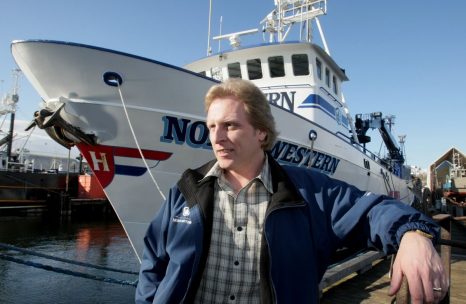
‘Deadliest Catch’ captain Sig Hansen won’t face charges in alleged abuse
Celebrity crab-boat captain Sig Hansen won’t face criminal charges on claims that he sexually abused his toddler daughter nearly three decades ago, Snohomish County prosecutors said Tuesday after conducting a review of old case materials. “We have concluded that it’s outside our charging standards and we’re going to maintain our original decision not to charge Mr. Hansen,” Deputy Prosecuting Attorney Matthew Baldock said. Meantime, a civil lawsuit against Hansen brought by his estranged daughter, Melissa Eckstrom, remains on hold until the state Court of Appeals decides whether a King County judge’s ruling that would allow the civil case to go to trial is legally sound. Click here to read the story 11:42
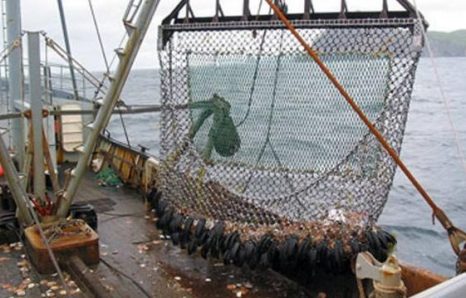
Weak Meats: Researchers identify widespread parasite in Alaska scallops
A lot of Alaska’s scallops are sick, and scientists are trying to figure out why. Alaska’s scallop fishery is a small one — in recent years, four boats, with just one operating in Kamishak Bay in Lower Cook Inlet. The rest operate out of Kodiak. Most scallop beds straddle the three-nautical mile line between state and federal management areas and is jointly managed by the National Marine Fisheries Service and the Alaska Department of Fish and Game. The permit system is attached to vessels rather than to individuals, restricting the entire fishery to nine vessels total under the federal system. But in recent years, the fishermen have had to start tossing a lot back. When they pull them up, a lot show signs of degraded meat with brown spots and a stringy texture and will occasionally slip off the shells at the processor. The condition, called “weak meats,” results in a lot of waste in the scallop fishery, as processors aren’t interested in buying scallops with weak meats. click here to read the story 09:46
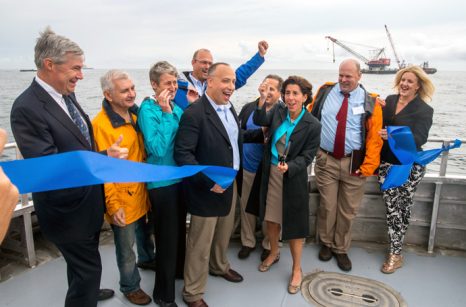
Central Coast should look to Rhode Island for bad experience with wind turbines
Our commercial fishermen met with the Bureau of Ocean Energy Management, and the bureau plans on putting hundreds of wind turbines off our coastline, taking hundreds of square miles of ocean away from fishing. We spoke with fishermen on the East Coast that had five wind turbines installed off Rhode Island, and they had nothing good to say. The installation required huge cement slabs on the bottom. The blades cause radar interference for miles. They are in squid and scallop fishing grounds, costing hundreds of jobs and millions of dollars lost to Rhode Island. They are placing them in navigation lanes, causing shipping vessels to travel around them. Also, most of the time they don’t work! They need repair constantly, and if the wind blows over 50 mph, they have to shut them down! They are being federally subsidized by millions of taxpayer dollars to mainly companies from other countries! It’s costing four times the amount it costs them for natural gas-powered electricity. Gov. Jerry Brown thinks using our oceans for energy is what we need. He is wrong. The ocean is a food source. It is wild and powerful and is not meant for industrialization. Tom Hafer, Atascadero link 09:19
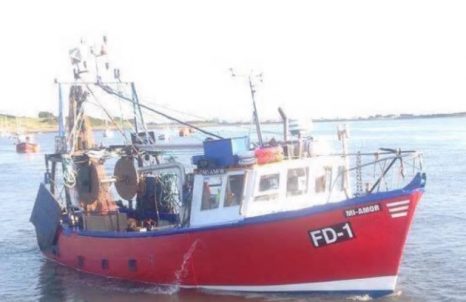
Wind Farm Conflict: Fisherman, “I feared for my life”
John Worthington was out trawling a catch on his 10m fishing vessel Mi-amor (FD1) when his boat and the 20m plus survey vessel Fairline Surveyor, employed in the windfarm industry, came within just a few metres of colliding. Had the two vessels made contact, the veteran fisherman says his boat would have been destroyed and he could have been killed. Mr Worthington, 51, of Troutbeck Avenue, captured the incident on camera and says it outlines the difficulties the inshore boats are now facing as the windfarm industry expands. DONG Energy is in the process of creating the new Walney Extension wind farm project just off Walney Island in Cumbria, but some of the waters coincide with where the fishermen ply their trade and the two parties are currently involved in a dispute over compensation. DONG says it has received no complaint about the near collision and insists safety is a priority. click here to continue reading the story 07:59
The fishery in Newfoundland and Labrador is in turmoil and I wish to inform the public as to the reasons why.
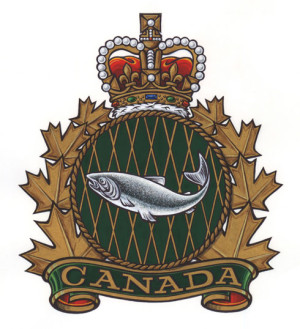 I am not taking sides with FISH-NL vs. the FFAW — this is a distinctly different matter that involves the right as to who represents fishers in collective bargaining. This is a matter of provincial jurisdiction that has nothing to do with fisheries management and DFO — a federal government responsibility. The Department of Fisheries and Ocean is denying the fishers their right to be consulted, and DFO has delegated its responsibility to the FFAW. The FFAW is a union constituted to represent fishers and plant workers for the purpose of collective bargaining. Click here to read the letter by Gabe Gregory Portugal Cove-St. Philip’s 20:56
I am not taking sides with FISH-NL vs. the FFAW — this is a distinctly different matter that involves the right as to who represents fishers in collective bargaining. This is a matter of provincial jurisdiction that has nothing to do with fisheries management and DFO — a federal government responsibility. The Department of Fisheries and Ocean is denying the fishers their right to be consulted, and DFO has delegated its responsibility to the FFAW. The FFAW is a union constituted to represent fishers and plant workers for the purpose of collective bargaining. Click here to read the letter by Gabe Gregory Portugal Cove-St. Philip’s 20:56
Shooting won’t stop us: Tamil Nadu fishermen
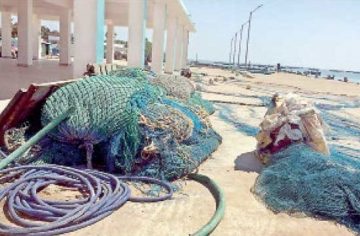 At the break of dawn on March 05, 2017, as the rest of world was sleeping, Charles and four other fishermen fired up the engine of their trawler and left for fishing from Pamban Island, Rameswaram, India. Charles and his fellow fishermen were waiting for hours after setting the net in the middle of the sea near Danushkodi. Later, Charles pulled the net into the trawler and checked what was collected, but it was empty. The fishermen were anxious as they did not want to return empty-handed. One of the fishermen suggested to sail a little far and see whether they would be able to get a good catch. Charles and the others have already heard of stories of local fishermen being arrested by the Sri Lankan Navy when they tried to reach,,, click here to continue reading the article 19:36
At the break of dawn on March 05, 2017, as the rest of world was sleeping, Charles and four other fishermen fired up the engine of their trawler and left for fishing from Pamban Island, Rameswaram, India. Charles and his fellow fishermen were waiting for hours after setting the net in the middle of the sea near Danushkodi. Later, Charles pulled the net into the trawler and checked what was collected, but it was empty. The fishermen were anxious as they did not want to return empty-handed. One of the fishermen suggested to sail a little far and see whether they would be able to get a good catch. Charles and the others have already heard of stories of local fishermen being arrested by the Sri Lankan Navy when they tried to reach,,, click here to continue reading the article 19:36
Home after 6 months detention, fishermen recall ordeal in Gulf – For six months, Indian fisherman S. George lived in fear on a boat, thinking he would never see his wife and children again. Click here to read the story 20:40
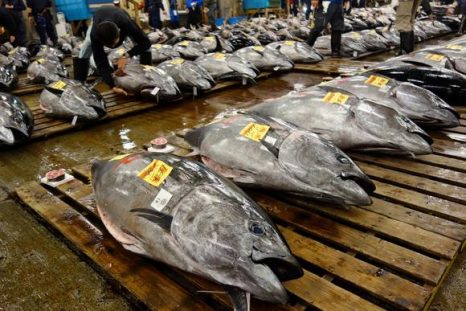
Japan on verge of breaking tuna fishing cap, unable to enforce self-imposed limit
Japan is poised to exceed an international commitment to limit catches of threatened Pacific bluefin tuna just two years after it adopted the cap, which has been undermined by lax compliance. Japan leads the world in catches and consumption of the fish. As of Monday, the Japanese bluefin catch had reached 99.7% of the agreed-on quota for the 12 months ending in June, making it only a matter of time — possibly within the next two weeks — until the commitment is broken. In 2015, Japan adopted limits on catches of immature bluefin, following a decision by the Western & Central Pacific Fisheries Commission. For the year to June, the quota comes to 4,007 tons, 3,995 tons of which had been caught as of Monday. click here to read the story (2 pages) 17:33
Near-death drama leads commercial fisherman to insurance career
 Three years ago, independent agent Patrick Schilling was trapped underwater in the cabin of a sinking commercial fishing boat in Alaska, fighting desperately to force open a door against the weight of the ocean. “The whole thing filled up with water,” he said. “I had to keep swimming up to the engine room [which contained an air pocket] … I was taking gulps of air and swimming under and was just pushing as hard as I could to try and get that door open. “I had my rain gear on and I couldn’t really move. I was pushing as hard as I could and nothing happened, and that’s when I thought: this is it.” Schilling miraculously survived, and has since swapped his fishing net for an agent’s desk. What used to be three-month stints out at sea have been replaced by a regular 9-5 desk job. click here to continue reading the story 16:37
Three years ago, independent agent Patrick Schilling was trapped underwater in the cabin of a sinking commercial fishing boat in Alaska, fighting desperately to force open a door against the weight of the ocean. “The whole thing filled up with water,” he said. “I had to keep swimming up to the engine room [which contained an air pocket] … I was taking gulps of air and swimming under and was just pushing as hard as I could to try and get that door open. “I had my rain gear on and I couldn’t really move. I was pushing as hard as I could and nothing happened, and that’s when I thought: this is it.” Schilling miraculously survived, and has since swapped his fishing net for an agent’s desk. What used to be three-month stints out at sea have been replaced by a regular 9-5 desk job. click here to continue reading the story 16:37
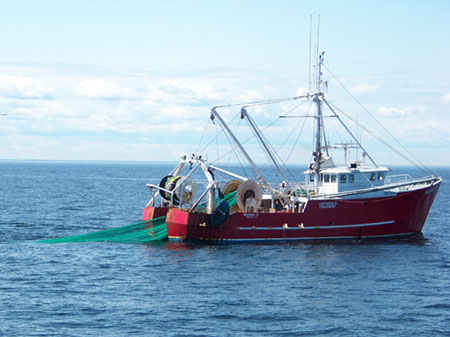
Northeast Cooperative Research Program Review
The Northeast Fisheries Science Center initiated an independent review of its Northeast Cooperative Research Program in 2016. The final reviewer report, NEFSC response, and action plan are now available and posted below. The review found that the NCRP has demonstrated success working with fishing industry partners on research that can improve fishery science and management. Examples include long-term efforts like the NEFSC study fleet, development of electronic reporting tools for catch and environmental data, enhanced sampling opportunities of fishery resources, and specialized industry-based survey collaborations. Click here to continue reading. 16:10
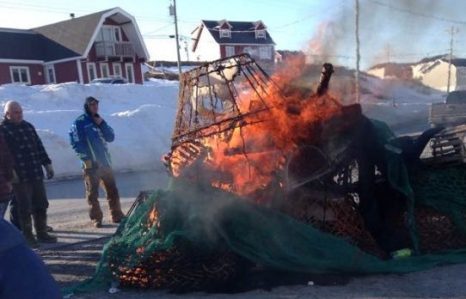
Fishing gear burned in Port au Choix protest
Fish harvesters from Newfoundland’s Northern Peninsula burned crab and lobster pots Tuesday morning outside the Department of Fisheries and Oceans office in Port au Choix, saying they don’t have access to enough fish to make a living. “We feel we are completely abandoned,” said one of the organizers, Stella Mailman. “We are absolutely trash to them. That’s all we are.” Mailman, who fishes for lobster, groundfish and halibut with her husband, said protesters came from communities from Sandy Cove to Parsons Pond, with truckloads of gear. “Crab pots, drag nets, lobster pots, and they actually put them in the parking lot and set fire to them,” she said, estimating there were eight to 10 truckloads burned. click here to read the story 12:12
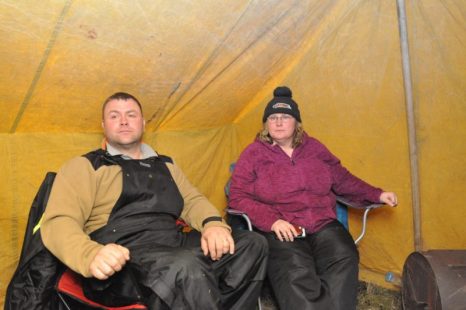
Day 6 – The hunger strike of Canadian Fisherman Richard Gillett continues
While Richard Gillett’s accommodations along the side of East White Hills Road have improved, his physical and mental state is headed in the other direction. Gillett, a Twillingate fisherman and vice-president of the Federation of Independent Sea Harvesters of Newfoundland and Labrador (FISH-NL), is five days into a hunger strike outside the entrance to the Northwest Atlantic Fisheries Centre. He is protesting what he considers mismanagement of Newfoundland and Labrador fish harvesting operations by the Department of Fisheries and Oceans (DFO) and its relationship with the Fish, Food and Allied Workers (FFAW) union.,, Also on Monday, Gillett had a meeting with two representatives from DFO, a senior scientist and a member of senior management. The meeting, he says, was nothing more than “lip service” and an effort to gauge his level of determination and the expected turnout of supporters on Tuesday morning when federal employees return to work following the Easter long weekend. click here to read the story 10:50
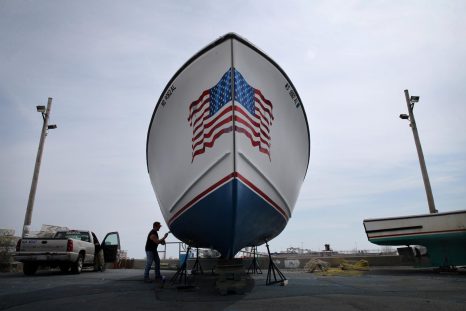
The Massachusetts fishing fleet confronts an opioid problem
A reputation for drug use has long followed the Massachusetts fishing fleet, whose fiercely independent crews often return to port flush with cash and ready to exhale after long and dangerous trips. Some fishermen link that reputation to a rugged cowboy culture; others to the pain medication taken by men and women whose bodies are battered by the job. But now, as opioid deaths rise relentlessly in Massachusetts, fishing captains from Cape Ann to Buzzards Bay are beginning to stock their boats with naloxone, a drug that reverses overdoses and is commonly sold under the trademark Narcan. click here to continue reading the story 09:46
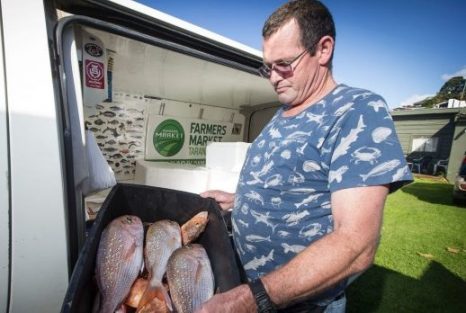
An online home delivered service is going off the hook!
Door to door fish deliveries are taking off in Taranaki like never before. “It started as a part time business, three days a week. But now I’m so busy I can’t go hunting,” said George Cameron, owner of G & J Fish Supplies Ltd in New Plymouth. Cameron said he believed the internet had a lot to do with the resurgence of fresh fish because people could order online and have him deliver it fresh to their door.,, He processes all the fish himself in his small factory setup in New Plymouth, a process that can take to four or five hours each day. Video, click here to read the story 09:01
Cape fishermen and environmentalists push to protect herring stocks from “Localized Depletion”
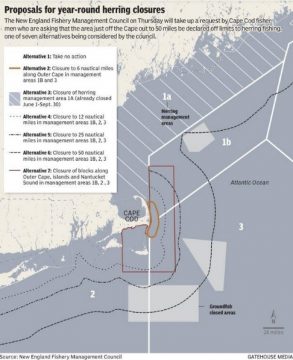 Local fishermen are hoping the New England Fishery Management Council will help protect tuna and other fisheries from the herring fleet by agreeing to have measures asking for year-round closures of up to 50 miles east of the Cape analyzed and included during a vote expected later this year. The council is meeting in Mystic, Connecticut, today through Thursday, when the board will work on herring regulations. “There’s a strong feeling that fisheries that used to happen here have been displaced by 10 years of intense herring removal,” said John Pappalardo, executive director of the Cape Cod Commercial Fishermen’s Alliance, and a member of the New England council and its herring committee. “The haddock resource is robust, but there’s no meaningful haddock fishery close to shore.” Localized Depletion. Are they not considering that with the squid fishery too? Oh yes they are! click here to read the story 08:08
Local fishermen are hoping the New England Fishery Management Council will help protect tuna and other fisheries from the herring fleet by agreeing to have measures asking for year-round closures of up to 50 miles east of the Cape analyzed and included during a vote expected later this year. The council is meeting in Mystic, Connecticut, today through Thursday, when the board will work on herring regulations. “There’s a strong feeling that fisheries that used to happen here have been displaced by 10 years of intense herring removal,” said John Pappalardo, executive director of the Cape Cod Commercial Fishermen’s Alliance, and a member of the New England council and its herring committee. “The haddock resource is robust, but there’s no meaningful haddock fishery close to shore.” Localized Depletion. Are they not considering that with the squid fishery too? Oh yes they are! click here to read the story 08:08
You can listen to all the council action by clicking these links. To read the final agenda, click here Register click here to listen live via webinar.
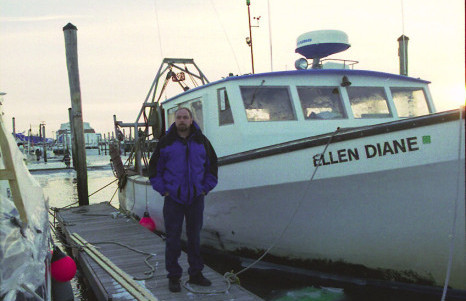
Fishermen shot down in fishing monitor dispute.
A federal appeals court has found in favor of the U.S. government in a challenge brought by a New England fishermen’s group over the cost of at-sea monitoring. The monitors are workers who collect data that help the government craft fishing regulations. The government shifted the cost of paying for monitors to fishermen last year. A group led by New Hampshire fisherman David Goethel sued the government over the rule change. Read the rest here 20:47
2016 GARFO Year in Review
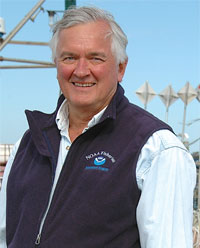 The Greater Atlantic Regional Fisheries Office (GARFO) is proud to announce the release of our second annual Year in Review report. The report highlights some of our key accomplishments for 2016, many of which were achieved through partnership and collaboration with the New England and Mid-Atlantic Fishery Management Councils, Atlantic States Marine Fisheries Commission, and Northeast Fisheries Science Center. Printed copies are available upon request. Click here to read the report. 16:54
The Greater Atlantic Regional Fisheries Office (GARFO) is proud to announce the release of our second annual Year in Review report. The report highlights some of our key accomplishments for 2016, many of which were achieved through partnership and collaboration with the New England and Mid-Atlantic Fishery Management Councils, Atlantic States Marine Fisheries Commission, and Northeast Fisheries Science Center. Printed copies are available upon request. Click here to read the report. 16:54Three Off Shore wind article’s regarding Mass, Long Island and Maryland
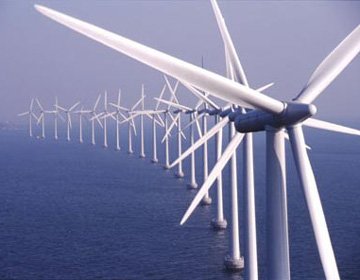 Massachusetts Readies for First Offshore Wind Procurement in June – Massachusetts is drawing closer to its first solicitation for wind energy in state waters, with a call for bids due in June. Click here Offshore wind farm may not meet peak summer demand on South Fork – An offshore wind farm at the center of a LIPA plan to address spiking electric demand on the South Fork will produce excess energy when it’s needed least, and fall short of a sharply expanding summer peak load, a recent analysis found. Click here US Wind Tackles Viewshed Concerns For Maryland Offshore Wind Project – In order to resolve concerns about the visual impacts of its proposed wind farm off the coast of Maryland, developer US Wind has offered to move the first line of turbines farther offshore, as far as five miles to the east. Click here 15:55
Massachusetts Readies for First Offshore Wind Procurement in June – Massachusetts is drawing closer to its first solicitation for wind energy in state waters, with a call for bids due in June. Click here Offshore wind farm may not meet peak summer demand on South Fork – An offshore wind farm at the center of a LIPA plan to address spiking electric demand on the South Fork will produce excess energy when it’s needed least, and fall short of a sharply expanding summer peak load, a recent analysis found. Click here US Wind Tackles Viewshed Concerns For Maryland Offshore Wind Project – In order to resolve concerns about the visual impacts of its proposed wind farm off the coast of Maryland, developer US Wind has offered to move the first line of turbines farther offshore, as far as five miles to the east. Click here 15:55
The New England Fishery Management Coucil will meet in Mystic CT. April 18 thru 20, 2017
 The New England Fishery Management Council will be meeting in Mystic CT at the Hilton Hotel. To read the final agenda, click here Register click here to listen live via webinar. 12:32
The New England Fishery Management Council will be meeting in Mystic CT at the Hilton Hotel. To read the final agenda, click here Register click here to listen live via webinar. 12:32
Cold Water Cowboys – Season 4 returns for more danger and drama
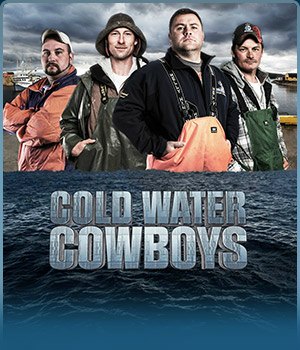 Being a fisherman off the coast of Newfoundland is a dangerous career. Being injured by machinery or a sharp object is always a concern. If something bad happens, you might be hours away from shore. And if things go really bad, you’re dead. Filming what goes on aboard a fishing boat off the coast of Newfoundland is just as dangerous. Just ask showrunner Maria Knight, whose small team captures dramatic and triumphant footage for Cold Water Cowboys, returning for Season 4 this Tuesday at 10 p.m. ET/7 p.m. PT on Discovery. “It’s not easy for my guys on a lot of levels,” says Knight. “They’ve all received emergency training—they can’t get on the boat without it—and they’re on a boat. It may look majestic on TV with them on the ocean, but there’s not a lot of space and it’s constantly moving. It puts the guys through a major workout.” click here to read the story 11:52
Being a fisherman off the coast of Newfoundland is a dangerous career. Being injured by machinery or a sharp object is always a concern. If something bad happens, you might be hours away from shore. And if things go really bad, you’re dead. Filming what goes on aboard a fishing boat off the coast of Newfoundland is just as dangerous. Just ask showrunner Maria Knight, whose small team captures dramatic and triumphant footage for Cold Water Cowboys, returning for Season 4 this Tuesday at 10 p.m. ET/7 p.m. PT on Discovery. “It’s not easy for my guys on a lot of levels,” says Knight. “They’ve all received emergency training—they can’t get on the boat without it—and they’re on a boat. It may look majestic on TV with them on the ocean, but there’s not a lot of space and it’s constantly moving. It puts the guys through a major workout.” click here to read the story 11:52
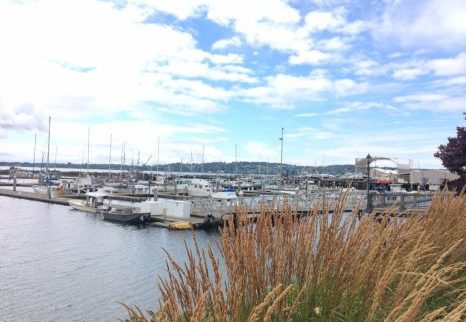
Working Waterfront: Blaine Harbor’s Community Presence
With deeply-rooted ties to the commercial fishing industry, Blaine Harbor sees commercial fishing vessels as an important part of the waterfront. Today, a smaller fleet sets out each day to harvest Dungeness crab and salmon during those respective seasons and supplies to four local seafood buyers. Port Commissioner, Bobby Briscoe, and his wife call Blaine home. Briscoe, a fourth-generation fisherman born and raised in Bellingham has operated commercial fishing vessels for over forty years in Alaska, Washington, Oregon and California. “Being a maritime family, a part of the Blaine community and now Port Commissioner gives me a unique perspective. As the gateway to the Pacific Northwest, Blaine harbor and the local commercial fishing fleet are an integral part of this hard working picturesque seaside community.” click here to read the story 11:23






